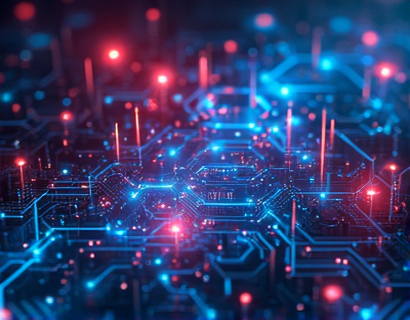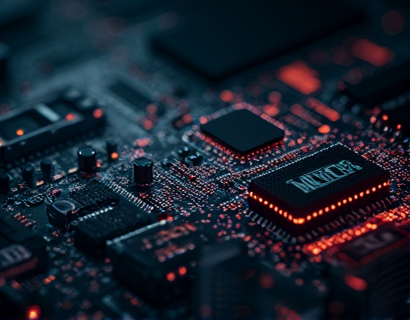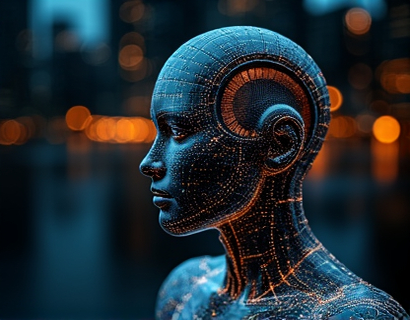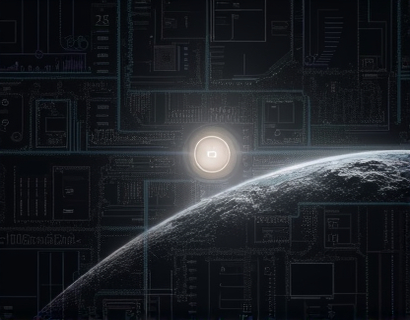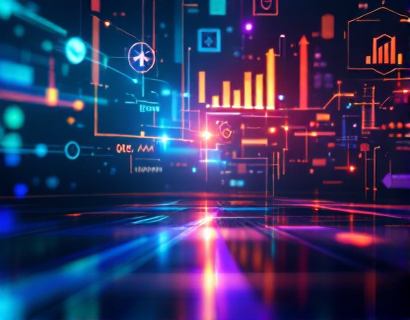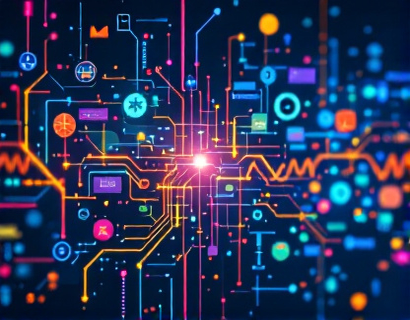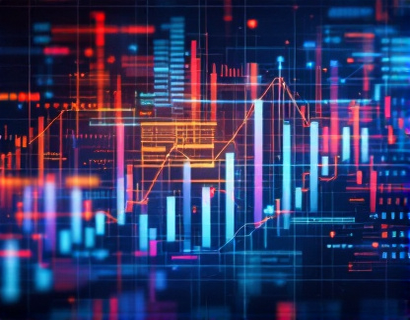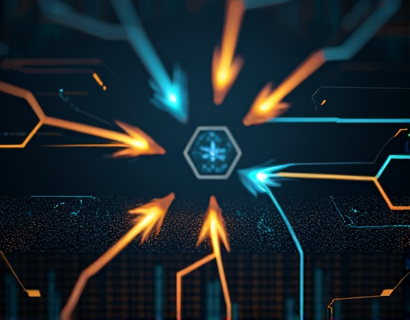Decentralized Productivity: Harnessing AI and Crypto for Next-Gen Digital Solutions
The intersection of cryptocurrency and artificial intelligence (AI) is giving rise to a new era of digital productivity tools and applications. This transformative blend is redefining how we approach tasks, collaborate, and manage our digital lives. The fusion of these technologies offers unprecedented efficiency, security, and innovation, catering to tech enthusiasts and professionals alike. This article delves into the dynamic world where decentralized systems and AI converge, exploring the potential and current applications that are shaping the future of digital productivity.
The concept of decentralized productivity is rooted in the principles of blockchain technology, which underpins cryptocurrency. Blockchain provides a secure, transparent, and tamper-proof ledger for transactions and data storage. When combined with AI, it creates a powerful ecosystem where applications can operate autonomously, learn from data, and improve over time, all while maintaining the integrity and security inherent to decentralized systems.
Enhanced Security and Trust
One of the primary advantages of decentralized productivity tools is the enhanced security they offer. Traditional centralized systems are vulnerable to single points of failure and cyber attacks, which can compromise sensitive data and disrupt operations. Decentralized systems, on the other hand, distribute data across a network of nodes, making it extremely difficult for malicious actors to manipulate or steal information. AI enhances this security by continuously monitoring the network for anomalies and potential threats, ensuring that the system remains robust and secure.
Trust is another critical factor in digital productivity. Decentralized systems eliminate the need for intermediaries, reducing the risk of fraud and increasing transparency. Every transaction and interaction is recorded on the blockchain, providing a verifiable and immutable history. AI can further enhance trust by providing predictive analytics and smart contracts that automate and enforce agreements, ensuring that all parties adhere to the terms set forth.
Improved Efficiency and Automation
AI-driven decentralized applications (dApps) are revolutionizing efficiency in various sectors. By automating routine tasks and processes, these applications free up time for more complex and creative work. For instance, in project management, AI can handle scheduling, resource allocation, and progress tracking, while blockchain ensures that all changes and updates are securely and transparently recorded. This synergy reduces manual errors, speeds up workflows, and enhances overall productivity.
Smart contracts are a prime example of how AI and blockchain can work together to improve efficiency. These self-executing contracts with the terms directly written into code can automate a wide range of processes, from financial transactions to supply chain management. AI can optimize the execution of these contracts by analyzing data, predicting outcomes, and adjusting parameters in real-time, ensuring that operations run smoothly and efficiently.
Personalized User Experiences
The integration of AI in decentralized platforms allows for highly personalized user experiences. AI algorithms can analyze user behavior, preferences, and performance data to provide tailored recommendations and tools. For example, in a decentralized workspace, AI can curate a customized dashboard with the most relevant applications, documents, and communication channels based on the user's role and current tasks. This level of personalization not only boosts productivity but also enhances user satisfaction and engagement.
Moreover, AI-powered virtual assistants integrated into decentralized platforms can offer real-time support and guidance. These assistants can handle routine inquiries, provide step-by-step instructions, and even predict user needs before they arise. The combination of AI's cognitive capabilities and the decentralized nature of the platform ensures that users have access to a seamless and intuitive experience.
Decentralized Data Storage and Management
Data storage and management are critical components of digital productivity. Decentralized storage solutions, such as InterPlanetary File System (IPFS), combined with AI, offer a more reliable and cost-effective alternative to traditional cloud storage. IPFS distributes files across a network of nodes, ensuring high availability and redundancy. AI can optimize storage by analyzing usage patterns, compressing data, and predicting storage needs, thereby reducing costs and improving performance.
AI also plays a crucial role in data management by providing advanced analytics and insights. Decentralized platforms can leverage AI to process and analyze large datasets, uncovering patterns and trends that would be impossible to detect manually. This capability is particularly valuable in industries like finance, healthcare, and research, where data-driven decisions are paramount. The decentralized nature of the storage ensures that data remains secure and accessible, while AI enhances its utility and value.
Decentralized Collaboration Tools
Collaboration is a cornerstone of modern productivity, and decentralized tools are redefining how teams work together. Decentralized communication platforms, such as decentralized messaging apps and video conferencing tools, ensure that conversations and files are securely stored and accessible to all participants. AI can enhance these tools by providing real-time translation, sentiment analysis, and content summarization, breaking down language barriers and improving communication efficiency.
Decentralized project collaboration platforms integrate AI to streamline workflows and enhance team coordination. These platforms can automatically assign tasks based on team members' availability and expertise, track progress, and provide insights into project health. AI-driven analytics can identify bottlenecks and suggest optimizations, ensuring that projects stay on track and meet their deadlines. The transparency and immutability of blockchain ensure that all team members have a clear and trustworthy view of the project's status.
Tokenization and Incentivization
Tokenization, a key feature of blockchain technology, is transforming how we incentivize and reward contributions in decentralized systems. Tokens can represent various forms of value, such as access to premium features, voting rights, or even monetary rewards. AI can optimize token distribution and incentivization strategies by analyzing user behavior and engagement metrics. This ensures that tokens are allocated to those who contribute most value to the ecosystem, fostering a motivated and active community.
In the context of decentralized productivity, tokens can be used to reward users for completing tasks, providing high-quality content, or contributing to the development of dApps. AI can dynamically adjust reward mechanisms based on real-time data, ensuring that the incentivization system remains fair and effective. This approach not only motivates users but also aligns their interests with the overall goals of the platform.
Challenges and Considerations
While the potential of decentralized productivity tools powered by AI and cryptocurrency is immense, there are several challenges and considerations to address. Scalability remains a significant issue, as blockchain networks can struggle to handle high volumes of transactions. However, ongoing developments in layer 2 solutions and more efficient consensus mechanisms are addressing these concerns.
Interoperability between different blockchain platforms and decentralized applications is another challenge. Standardization and the development of cross-chain protocols are essential to create a seamless and integrated ecosystem. AI can play a role in optimizing interoperability by analyzing compatibility and suggesting solutions.
Regulatory compliance is also a critical factor. As decentralized technologies evolve, regulatory frameworks are adapting, but there is still a need for clear guidelines and standards. Staying informed and compliant with regulations is essential for the sustainable growth of decentralized productivity solutions.
Future Outlook
The future of decentralized productivity is bright, with continuous advancements in AI and blockchain technology paving the way for even more innovative applications. As these technologies mature, we can expect to see more sophisticated and user-friendly tools that further enhance efficiency, security, and collaboration. The integration of AI with decentralized systems will continue to drive innovation, opening up new possibilities in areas such as remote work, digital asset management, and smart city infrastructure.
The adoption of decentralized productivity tools is likely to grow as more organizations and individuals recognize the benefits of decentralization and AI. Education and awareness will play a crucial role in this adoption, as understanding the potential and practical applications of these technologies becomes more widespread. The community-driven nature of decentralized projects ensures that users have a voice in shaping the future, fostering a collaborative and inclusive environment.
In conclusion, the convergence of AI and cryptocurrency is giving birth to a new paradigm of digital productivity. By leveraging the strengths of decentralized systems and AI, we can create more secure, efficient, and innovative solutions that transform the way we work and interact in the digital world. As we continue to explore and harness this powerful synergy, the possibilities for enhancing productivity and user experiences are truly endless.




